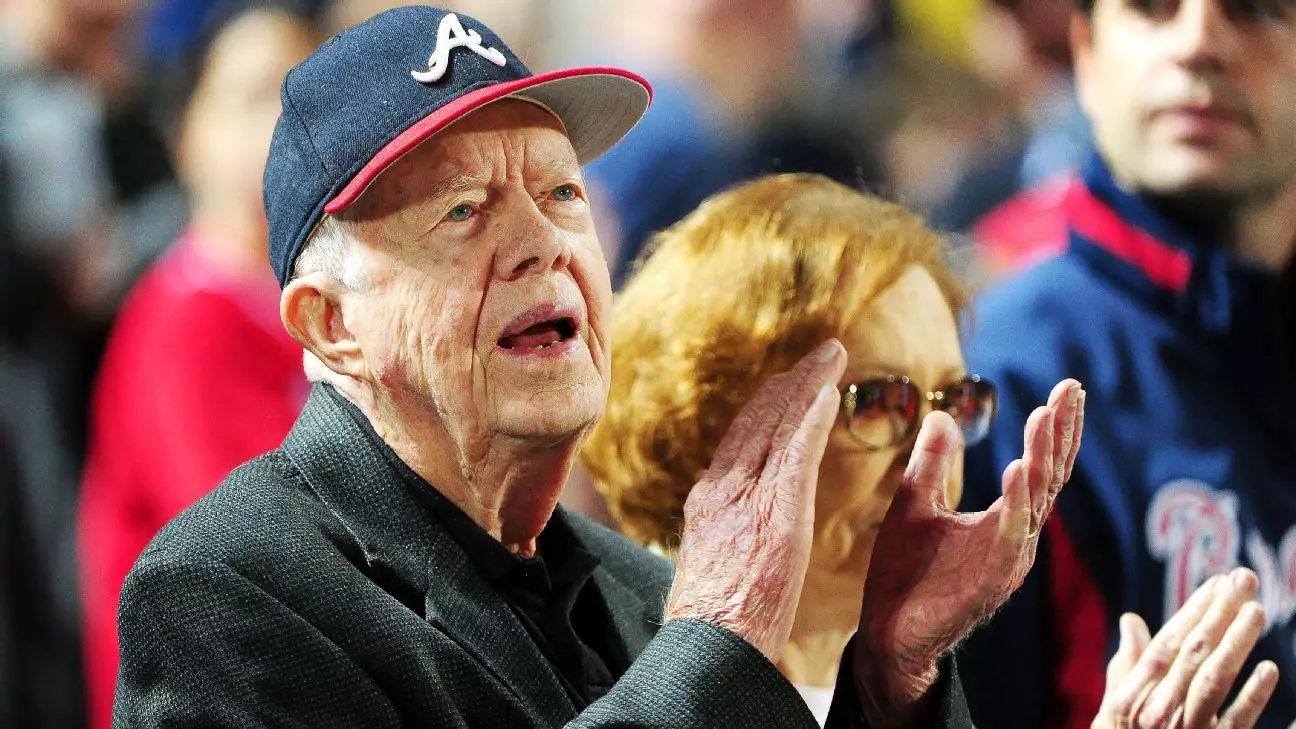Jimmy Carter, the 39th President of the United States, passed away on Sunday at the remarkable age of 100, leaving behind not only a legacy marked by a singular presidency but also a life devoted to public service, humanitarian efforts, and personal integrity. The announcement of his death was made by The Carter Center, which revealed that he departed peacefully, surrounded by his loving family at his home in Plains, Georgia. Carter’s longevity not only marked him as the longest-living president in U.S. history but also symbolized a life rich with varied experiences, challenges, and triumphs.
Carter’s presidency (1977-1981) was characterized by both pivotal moments on the international stage and formidable domestic challenges. Among his most controversial decisions was the U.S. boycott of the 1980 Moscow Olympic Games, a direct response to the Soviet Union’s invasion of Afghanistan. This decision, while aimed at protesting a foreign aggressor, reverberated through sports and politics, influencing relationships between the U.S. and various countries for years to come. More than 60 nations joined in the boycott, including major countries like Germany and Japan, showcasing the far-reaching impact of Carter’s policies.
A President with a Passion for Sports
Carter maintained a deep love for sports throughout his life, most notably as a devoted fan of the Atlanta Braves. He made history by being the first president to host a Super Bowl champion team at the White House when he welcomed the Pittsburgh Steelers in 1980. This passionate engagement with sports provided not just a glimpse into his personal interests, but also illustrated how unexpectedly interconnected politics and culture can be, as these events captured the spirit of a nation.
Not just a casual fan, Carter’s athletic background included participation in various sports during his youth, and he was known for his active lifestyle. He played basketball, tennis, and track, as well as being part of the cross-country team during his time at the U.S. Naval Academy. His experience in these activities shaped his understanding of teamwork, perseverance, and leadership—qualities he carried into his presidency and beyond.
After leaving office, Carter devoted himself to humanitarian work more than perhaps any former president before him. In 1982, he founded The Carter Center, a nonprofit organization that focuses on global issues, including disease prevention, health care, and the promotion of democracy and human rights. His efforts in this sphere garnered him the Nobel Peace Prize in 2002, underscoring his commitment to making the world a better place even after his political tenure had ended.
Carter’s focus on public service extended to his long-standing partnership with Habitat for Humanity, helping many families attain home ownership. His work in this area was not just symbolic; he physically participated in building homes, bringing national attention and raising funds for the cause. This dedication highlighted an authentic human side to his public persona that resonated with many Americans and individuals around the world.
Carter’s personal life was as remarkable as his professional journey. He married Rosalynn Carter in 1946, and their enduring relationship was a beacon of stability in both their personal and public lives. They both maintained active roles in community service and made significant contributions to various causes, serving as role models for ethical living and partnership.
Their family, including three sons and a daughter, remains a testament to the values that Carter championed: love, integrity, and a commitment to help those less fortunate. Even during his declining health, as hinted in the announcements surrounding his hospice care, Carter surfaced as a figure of resilience, choosing to spend his final days in the comfort of his home rather than undergoing aggressive treatments.
The reaction to Carter’s passing highlights how deeply he was respected across political and social spectrums. His impact on American life stretches far beyond the years he served as president. He was known as a great humanitarian and a proud Georgian, as Arthur Blank, owner of the Atlanta Falcons, aptly noted in a statement of grief regarding his friend.
As we remember Jimmy Carter, we do so not just for his time in office but for his undeniable influence as a humanitarian and moral leader. His work, both as president and thereafter, firmly placed him in the hearts of many as a symbol of unwavering dedication to global betterment, setting a standard that future leaders may strive to achieve. While his physical presence is now stilled, the echoes of his life’s work will undoubtedly reverberate through history, inspiring future generations to pursue lives of service and compassion.


Leave a Reply